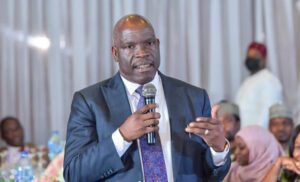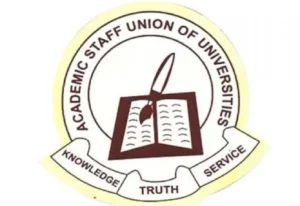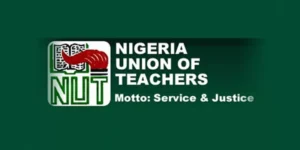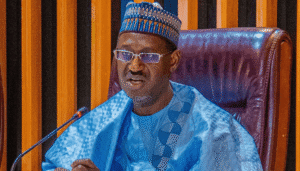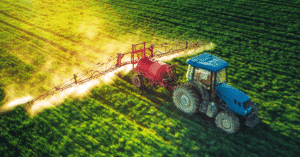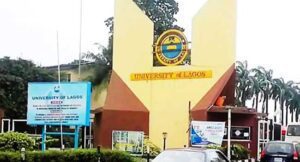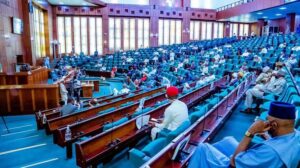Nasarawa State Government is growing rice steadily in Obi and Awe LGAs, raising hopes that the state is on the right track to achieving zero importation of food staple, LINUS OOTA reports.
Nasarawa State Governor, Engr Abdullahi Sule, is steadily shaping a new narrative for the state, one anchored on building legacies in sustainable agriculture through rice revolution that connects the people and the state government to prosperity.
The state has become a model in Nigeria’s strides to boost local rice production and has cemented its status as the country’s rice production hub, contributing significantly to the nation’s goal of reducing food imports.
Nasarawa state, Nigeria’s ‘home of solid minerals, is emerging as a beacon of agricultural innovation, defying economic challenges to become a cornerstone of food security in West Africa. Through ambitious policies, international partnerships, and grassroots efforts, Nasarawa is revolutionizing rice production, empowering farmers, and driving economic growth.
The Abdullahi Sule- led administration has taken the bull by the horns with its focus on stemming the pangs of hunger in the state. His administration recognises the critical role agriculture plays in the economy, providing employment, income, and nutrition to the population.
The state government’s agricultural policies are multifaceted, focusing on enhancing productivity, ensuring food security, and addressing hunger through a combination of infrastructure development, empowerment programmes, technological innovation, and strategic partnerships. These initiatives aim not only to improve the livelihoods of farmers but also to create a sustainable food system that benefits all residents of the state.
Early this year, the state government commenced planting on an additional 3, 500 hectares of land for rice cultivation in Ayarkeke in Awe Local Government Area of the State.
Sule had joined the planters to start the new farming season, with his administration now extending the rice farm to 5, 500 hectares.
Recall that during the last cropping season, the state government cultivated 2, 000 hectares of rice in Jangwa, also in Awe Local Government Area.
Flagging off the planting season in Ayarkeke, Governor Sule said the expansion of the government rice farm became necessary following the call by President Ahmed Bola Tinubu on the state to sustain its efforts in boosting agriculture for food security.
“Today, we are on the other side of Ayarkeke, which is at the border with the Obi Local Government Area. We are clearing another 3,500 hectares of land, and today, we are planting. After the rain yesterday, after the visit of President Ahmed Bola Tinubu, if you remember, Mr. President clearly reminded Nasarawa State to continue to focus on agriculture. It is in line with that that we are going ahead with this expansion of the additional 3000 hectares,” he stated.
The governor used the opportunity to clear the air regarding complaints from local farmers in the area who are claiming ownership of a section of the farmland already cleared by the government.
He explained that the 3, 500 hectares of land was virgin land belonging to the state government but that his administration is willing to accommodate local farmers by restricting farming activities to areas where there is no dispute over ownership.
“This area used to be a total bush. Nobody has planted anything here. That is why you are seeing piles of wood in the middle of the farm. We have planted, and we are hoping that very soon we will come and apply chemicals, and after that, we will come back to apply fertilizer. From there, we wait for the rice to grow.
“It is one of the reasons why I came. There were complaints from the Tiv community that we were clearing part of their land. That was why I asked the traditional ruler of Ayarkeke whether the area of complaints extends to the area where we are planting now. I asked to find out about the actual area of dispute, and he said it is deeper inside where we have already cleared. I have now instructed our team that any area in dispute should not be cultivated,” he said.
According to the governor, with Nasarawa State covering a land mass of 27,000 square kilometres, with less than 20 percent being cultivated, there is no need to create any problem over ownership of 10 or 5 hectares of land.
“These people complaining don’t even have 5 hectares of land. There is no need to create needless tension. Anywhere, even after we clear, and then as long as the people are complaining it’s their land, we should wait, we should not plant until we are able to resolve it,” he added.
At the middle of the farming season this year, Governor Abdullahi Sule equally accompanied the minister of Agriculture and Food Security, Senator Abubakar Kyari to visit the 1, 300 hectares of Ayarkeke rice farm in Nasarawa.
The Minister visited the Ayarkeke rice farm, an extension of the 2000 hectares Jangwa rice farm.
Senator Kyari, who was visibly excited with what he met on ground in Ayarkeke, urged other subnationals to emulate what Governor Sule is doing to enhance food security.
He expressed appreciation to President Ahmed Bola Tinubu for creating the enabling environment for subnationals to key into the food security component of the renewed hope agenda.
He commended the Nasarawa State Governor for his determination to see that not only food is secured but also job creation, livelihoods upliftment of the people and communities.
“As we are coming here, you can see the rural roads that were constructed by the state government, the opening of the expanse of agricultural lands. Look at what we are seeing here today. Look at the expense. This is all the initiative of the Governor.
“For me, this is an exciting initiative. It is something that is in alignment with the renewed hope agenda of President Bola Ahmed Tinubu to increase food production, increase productivity and yield. This is exactly what it is today. I hope and wish that a lot of the subnationals would emulate what Governor Sule is doing,” the Minister said.
He particularly appreciated Governor Sule for opening up an entirely virgin land and committing resources to turn the area into an agricultural haven.
According to the Minister, Nigeria has over 70m hectares of arable land but that only 35m hectares is being utilised, adding that with the country’s growing population, there is the urgent need to reclaim virgin lands for agricultural purposes like it’s been done in Nasarawa.
“In Nigeria, we have 70m hectares of arable land. But we are only utilising 50 percent of it. We have a growing population and unless and until we capture the additional. What we are seeing here, you could see stumps of trees that have fallen. All this place was almost unutilised and now you could see it has now been turned into an agricultural haven. For me, this is an exciting initiative,” he said.
Kyari was confident that, alongside the 2000 hectares of rice farm in Jangwa, the initiative by the Nasarawa State Government is capable of producing about 9000 tons of rice.
Speaking to journalists after inspecting the farm, he said that with the current demand for rice in Nigeria put at about 10m tons, while local production at about 9m tons, initiatives such as this in Nasarawa would serve to breach the deficit gap.
“I have already mentioned to His Excellency, Governor Abdullahi Sule, whether it is technical, it is inputs or financial support, we are willing to collaborate on such initiatives, because we have seen the steps His Excellency has taken,” the Minister stated.
Also addressing journalists shortly after taking the Minister round the rice farm, Governor Abdullahi Sule, again, called on the people of the state to appreciate President Ahmed Bola Tinubu for making it possible for his administration to embark on such projects.
“We are appreciating the Minister and President Bola Ahmed Tinubu. At every available opportunity, I always inform the people of Nasarawa State that for all our development initiatives, we have not borrowed a single kobo. We have not borrowed a single kobo from any bank. It is the policy thrust of the Federal Government under the leadership of President Tinubu that is making it possible for us to embark on all these projects. This is as a result of the maximum improvement in resources coming to the states. At every time, I always call on you when you pray for me to also pray for President Tinubu,” he stated.
Sule used the opportunity to urge the people of the area, especially the youths, to embrace peace and to key into the project in order to improve their socio-economic wellbeing.
He disclosed that his administration opened up the area for agriculture by undertaking the construction of the Adudu-Azara road, as well as Ribi-Jangwa road.
Sule, however, appealed to the Minister of Agriculture and Food Security to take up the construction of the Jangwa Ayarkeke road leading to the rice farm.
On measures put in place to make the Jangwa Rice Farm sustainable, Governor Abdullahi Sule said that his administration is putting measures on ground to ensure the sustainability of the state-owned Jangwa Rice Farm.
Sule made this known recently shortly after inspecting the extension of the Jangwa Rice Farm in Agwatashi, Obi Local Government Area, preparatory to harvesting the rice planted about three months ago.
According to the governor, with the state government having committed enormous resources in clearing the 3,300 hectares of land, with the extension virtually a virgin land, his administration is taking steps towards ensuring the sustainability of the project beyond 2027.
“We want to keep this farm beyond when we are in office, so that the next government will take it over. A lot of work has been done in clearing the land only. When you clear this size of land, in thousands of hectares, you are not going to recover your expenses immediately. It is over the time that you continue to plant that you will be able to recover.
“But you can’t do all this clearing only to abandon the land after two or three seasons. That is the reason why we are going to put in place whatever is necessary to ensure that this farm is sustained beyond our administration,” he stated.
He said he personally visited the farm as part of preparations towards harvesting the rice expected to commence in three weeks’ time.
Governor Sule disclosed that as part of the preparations, the road leading to the farm would be graded to make it more accessible to heavy-duty vehicles that would evacuate the harvested rice to be transported to Lafia, the Nasarawa State capital.
He added that the state government will also procure additional combined harvesters to facilitate efficient and timely harvesting of the rice.
“From what you have seen, the farm is ready for harvest. We are getting ready to start harvesting in the next two weeks or so. Before we do that, we will grade the road leading to the farm so that it would be motorable for most of the heavy-duty vehicles coming to evacuate the harvested rice.
“We are also going to work towards getting enough combined harvesters to enable the harvesting quickly so that we can take the rice to Lafia,” he said.
The Governor hinted on additional measures being put in place to adequately secure the farm and protect it from vandalisation.
He disclosed that the Nigeria Security and Civil Defence Corps (NSCDC) in the state is partnering with the state government by providing additional security on the farm.
“We are also here with the Commandant of the NSCDC. He decided to join us on the trip in order to assist by providing more security for the area,” he said.
Governor Sule equally unfolded additional initiatives aimed at engaging the youths of the area to take ownership of the farm.
“Most of the youths from this area are from Ayarkeke, Agwatashi, and Jangwa. They are the ones involved in working on the farm. I have made a commitment to them that the moment we finish this harvest, and we are able to realise our proper yield, we will come back to compensate them properly.
“In addition to whatever salary and allowances we are paying them, we will make a special provision, a bonus, that we will give to the community for everything they have done,” he explained.


